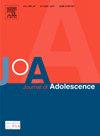The Impact of Competitive Gaming Context on Aggressive Behavior in High School Students: The Positive Role of Cooperative Gaming Context
Abstract
Introduction
Interactions within gaming contexts, whether competitive or cooperative, play a pivotal role in shaping players' behavioral responses. Research suggests that competitive gaming can exacerbate aggressive behavior. However, the impact of competition on aggression among high school students and potential mitigating factors remains inadequately explored. This study examines the effects of competitive and cooperative gaming contexts on aggressive behavior in high school students through survey research and experimental studies.
Methods
Study 1 collected data via online questionnaires in December 2022, utilizing the Gaming Experience Questionnaire and the Aggression Questionnaire to investigate 876 first-year high school students (455 boys, 421 girls) from Sichuan Province, China. Study 2 employed 2 (competitive context: yes/no) × 2 (cooperative context: yes/no) between-groups experimental-control design. In December 2022, 108 first-year high school students (46 boys, 62 girls) from Sichuan Province, China, were recruited to participate in the study. The game material used was “Overcooked 2,” and the dependent variable was assessed using the Competitive Reaction Time Task.
Results
The results of Study 1 indicated that highly competitive game exposure was associated with increased aggression, while cooperative game exposure played a moderating (or mitigating) role. The results of Study 2 revealed that competitive game context significantly increased the player's aggressive behavior, whereas cooperative game context moderated (or alleviated) the influence of competitive game context on aggressive behavior.
Conclusions
Findings from this study indicated that competitive contexts within games amplified postgame aggressive behavior among high school students. Notably, cooperative contexts within games were found to alleviate the aggression-enhancing effects of competition. These results present a novel avenue for exploring strategies to mitigate the adverse impacts of online video games on player behavior.

 求助内容:
求助内容: 应助结果提醒方式:
应助结果提醒方式:


